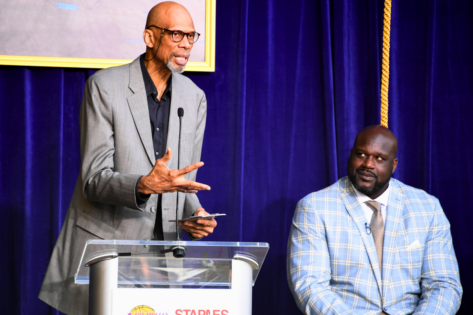Is Trump Turning Diplomatic Posts into Soft Landings for Departing Officials?
Understanding the Soft Landings in Trump’s Diplomatic Appointments
In the realm of international relations, diplomacy is often characterized as a form of soft power. However, under President Donald Trump’s administration, it has evolved into a mechanism for maintained loyalty and second chances. The recent appointments of individuals such as National Security Adviser Mike Waltz, IRS Commissioner Billy Long, and State Department spokesperson Tammy Bruce reflect a trend of providing soft landings for those who have faced challenges in their roles. This strategy is indicative of Trump’s effort to retain loyal supporters within his administration, even when their previous positions did not align perfectly with their skills or the administration’s goals.
The Dynamics of Loyalty and Reappointment
Trump’s approach to appointing ambassadors showcases a blend of loyalty and political strategy. The appointments to high-profile roles, such as U.N. ambassador, are often seen as rewards for steadfast supporters. This practice serves a dual purpose: it keeps loyalists close and minimizes the potential for dissent. Rather than the dramatic firings that characterized his first term, Trump appears to favor a more subtle approach, allowing former officials to transition into new roles while maintaining their allegiance.
Case Study: Mike Waltz and the Transition to U.N. Ambassador
Mike Waltz’s transition to U.N. ambassador is a telling example of this trend. Initially facing criticism after mistakenly adding a journalist to a military planning chat, Waltz’s situation seemed precarious. However, Trump reframed the narrative, presenting the appointment as a celebration of Waltz’s contributions. This strategic pivot not only salvaged Waltz’s political career but also reinforced Trump’s commitment to his loyalists, despite the bumps along the road.
The Role of Billy Long: From IRS to Iceland
Billy Long’s appointment as ambassador to Iceland further illustrates this trend. As the shortest-tenured IRS commissioner in history, Long’s tenure was marked by contradictions to administration messaging. His reassignment can be viewed as both a soft landing and a means to keep him within the fold of Trump’s political orbit. Long’s enthusiastic response to the new role emphasizes the importance of maintaining a positive public persona, even amid internal disagreements.
Tammy Bruce’s New Position: A Different Kind of Challenge
Tammy Bruce’s journey from State Department spokesperson to deputy representative to the U.N. also highlights the complexities of Trump’s appointments. Despite facing challenges in her previous role, Bruce’s relationship with Trump and her advocacy for his policies played a significant role in her reassignment. This transition, however, raises questions about whether the U.N. position is perceived as an advancement given the general skepticism surrounding the organization within the “Make America Great Again” movement.
The Implications of Soft Landings in Diplomacy
The pattern of offering soft landings contributes to the overall stability of Trump’s administration. By keeping loyalists close, Trump minimizes the risks of public dissent and maintains a unified front. This strategy contrasts sharply with the high turnover and frequent firings that marked his first term, indicating a shift in how he approaches staffing and loyalty.
Stability vs. Accountability
While this approach may promote stability within the administration, it also raises questions about accountability. By providing soft landings for individuals who have struggled in their roles, Trump risks perpetuating a cycle of mediocrity. The emphasis on loyalty over competence can hinder the effectiveness of U.S. diplomacy, particularly when dealing with complex international issues.
Public Perception and Media Narratives
The media narratives surrounding these appointments often reflect a broader skepticism about Trump’s approach to governance. Critics argue that the reliance on loyalists, regardless of their previous performance, undermines the integrity of U.S. foreign policy. However, supporters view these appointments as a testament to Trump’s commitment to his allies and the America First agenda.
The Future of Diplomatic Appointments Under Trump
As Trump continues his second term, the implications of these soft landings will be closely watched. The challenge will be to balance loyalty with the need for effective governance. Each appointment provides insight into Trump’s strategic thinking and the importance he places on maintaining a loyal political base.
What Lies Ahead?
Looking ahead, the efficacy of these diplomatic appointments will ultimately be tested on the world stage. The ability of individuals like Waltz, Long, and Bruce to navigate complex international issues will determine the success of Trump’s foreign policy initiatives. Their performance in these roles will shape public perception and influence future staffing decisions.
Frequently Asked Questions
What are the implications of soft landings for U.S. foreign policy?
Soft landings can create a stable environment within the administration but may compromise the effectiveness of foreign policy if loyalty is prioritized over competence.
How do Trump’s diplomatic appointments differ from traditional practices?
Trump’s appointments often emphasize loyalty over experience, contrasting with traditional practices that prioritize expertise and qualifications for high-profile roles.
What role do ambassadors play in U.S. diplomacy?
Ambassadors represent U.S. interests abroad, engage with foreign governments, and help shape diplomatic strategies, making their qualifications and effectiveness crucial to successful foreign relations.
Why is the media critical of Trump’s approach to appointments?
The media often critiques Trump’s prioritization of loyalty in appointments, arguing it may lead to ineffective governance and undermine U.S. foreign policy credibility.
What factors influence Trump’s choice of ambassadors?
Trump’s choice of ambassadors is influenced by loyalty, previous support for his agenda, and the desire to maintain a cohesive political base, often at the expense of traditional qualifications.
As the landscape of U.S. diplomacy continues to evolve, one must ponder: How will the focus on loyalty over competence impact the effectiveness of American foreign policy in the years to come? Will these soft landings lead to innovation and adaptation, or will they foster stagnation? #TrumpAdministration #Diplomacy #PoliticalAppointments
```Published: 2025-08-13 04:07:41 | Category: Trump GNEWS Search



